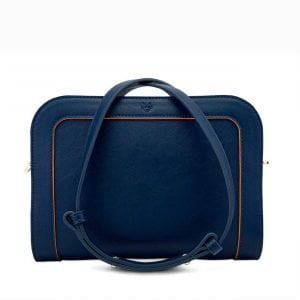Navigating Black Friday
We work hard to advocate a slow fashion approach to design and manufacturing. Fast fashion and overconsumption are global issues, and Black Friday feeds the obsession to over-buy. But is it really what it seems?
How much do people spend on Black Friday weekend in the UK?
In 2019, the UK population spent £8.6 billion over the Black Friday weekend. 2020 saw a drop in spending of 12.4% to £7.5 Billion. Can you remember what you purchased on Black Friday last year?
If you can, and you still have it, fantastic! But many people don't, and as fast-fashion retailers slash prices for just one day, we must ask ourselves, who pays the ultimate price?
What is more, how do you know the price you pay on Black Friday is the lowest price? The hype behind Black Friday gives us all the impression that everything we buy is a bargain, and the adrenalin builds into a shopping frenzy. But, according to research by Which, this isn't actually the case. The research tracked the price of 119 items. Six months before Black Friday, 85% of the items had been the same price, or less expensive. Only three of the 119 products were at their absolute lowest price on Black Friday.
The impact of fast-fashion discounts on Black Friday
Historically, some of the biggest fast-fashion brands have sold clothing for as little as 1p. Considering the material cost, labour, shipping, business overheads, and staff wages, it is hard to fathom how these prices can be justified.
The answer is simple. The buying power these brands have is enormous. So much so that they can barter and push garment factories to a tiny price per item. In turn, the impact falls on the prominently female population of garment workers, who are paid a wage so low that it leaves them unable to provide even the basic needs of their families.
The combination of fast fashion and Black Friday sales can magnify the negative impacts associated with fast fashion, including environmental damage, labour exploitation, and the promotion of a disposable culture.
Changing the behaviour
Changing the Black Friday sales culture involves a combination of individual actions, industry changes, and societal shifts. Here are some things you could try:
Promote Conscious Consumerism: Prioritise quality over quantity. Think about the impact of your purchases on the environment, human labour, and our society. Supporting brands with sustainable and ethical practices can make a big difference.
Advocate for Regulation: Push for regulations that ensure fair labour practices, transparency in supply chains, and environmentally friendly production methods.
Alternative Campaigns: Look for alternative campaigns like 'Buy Nothing Day" or "Green Friday," where retailers donate a percentage of sales to environmental or social causes instead of heavy discounting.
How to Shop Black Friday without overspending
Shopping during Black Friday without overspending or being wasteful requires a strategic and mindful approach. Here are some tips:
- Set a Budget: Decide on a budget before Black Friday and stick to it. This helps prevent overspending and impulse purchases.
- Make a List: Create a list of items you genuinely need or have been planning to buy. Stick to purchasing those specific items and avoid unnecessary impulse buys.
- Research and Compare Prices: Research prices beforehand to ensure the deals during Black Friday are genuine. Compare prices across different retailers to make informed decisions.
- Quality Over Quantity: Prioritise quality over quantity. Look for durable and timeless items rather than buying multiple cheaper, lower-quality products.
- Avoid Fast Fashion Temptations: Avoid the temptation of heavily discounted fast fashion items that might contribute to overconsumption and waste.
- Consider Secondhand or Sustainable Options: Explore secondhand stores, thrift shops, or sustainable brands that might offer alternatives to buying new items during Black Friday.
- Wait for Essential Purchases: Consider whether urgent purchases can wait until after the Black Friday rush. Sometimes, waiting for sales beyond this period might still offer good deals without the frenzy.
- Use Cashback and Reward Programs: Use cashback offers, loyalty programs, or credit card rewards to help you save money or earn rewards while shopping.
- Stay Mindful of the Environment: Remember the environmental impact of your purchases. Opt for items with minimal packaging or consider the product's overall lifecycle before purchasing.
- Reflect Before Purchasing: Take a moment to pause and reflect before purchasing. Ask yourself if the item is essential and aligns with your values and needs.
Our Black Friday offers on low-impact vegan wallets, card holders and bags.
Most brands have a selection of items which are slow to sell or are being discontinued. These are the items you find on sale. Not just on Black Friday. In addition to discontinued items, we offer gift sets that offer a small saving but provide you with a valuable gift for friends and loved ones.
Our collection is handmade by people who are paid a fair living wage. We keep our costs as low as possible, but we do not compromise on material quality, craftsmanship and ethical working practices. We are also committed to ensuring all our items are 100% cruelty-free and vegan.
Shop Black Friday offers here
Follow us on:
Main photo by charlesdeluvio
Updated 18th November 2023








